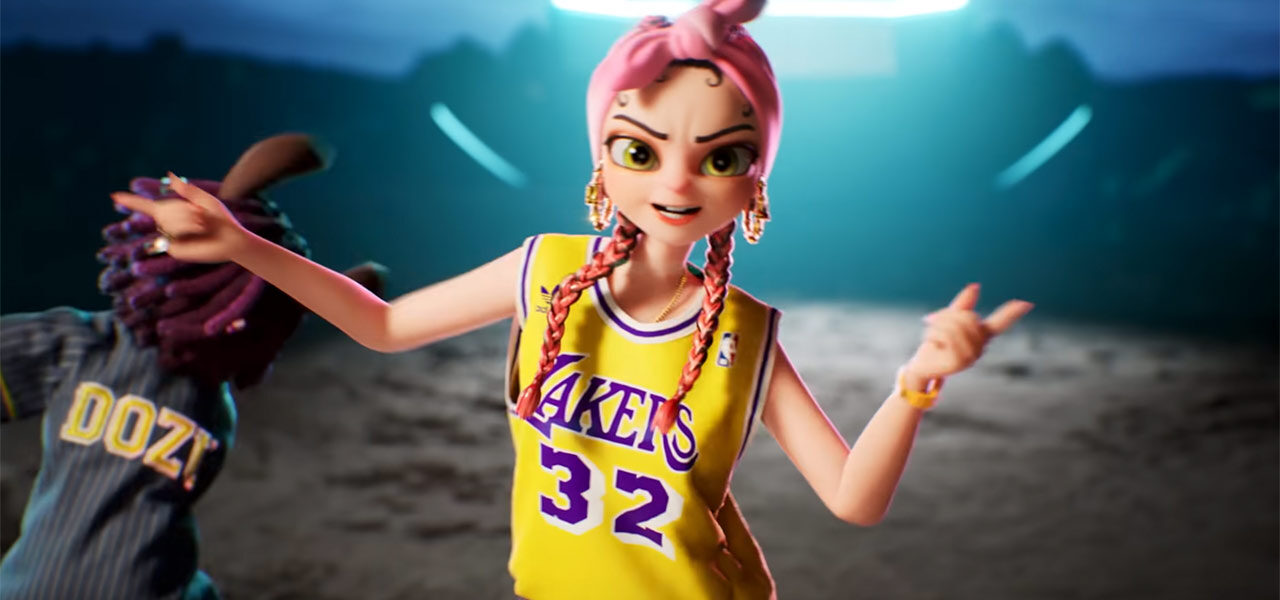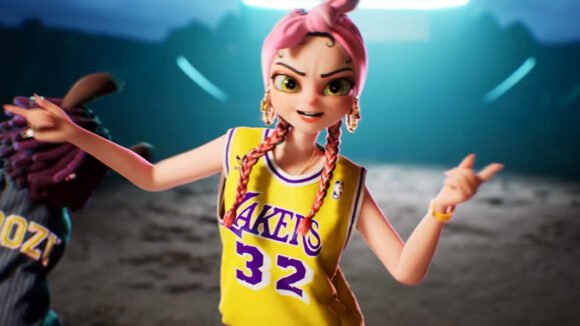

Korean Animated Influencer Apoki Drops First English-Language Single
South Korean animated character – or virtual influencer as they’re now called – Apoki dropped her first English-language single earlier this week, and the video has already pulled nearly 9 million views on Youtube.
Who is Apoki? Apoki is an animated Korean pop star which first appeared on Youtube in 2019 and has since released a trio of popular Korean and Japanese singles. Created and produced by start-up VV Entertainment, Apoki is currently signed to Sony Music Solutions which backs the project alongside Korean tech venture company Afun Interactive. On August 25, the character’s first English-language single, “West Swing” featuring rapper E-40, landed on Youtube. The Apoki channel currently has more than 290,000 subscribers on the service, and the “West Swing” music video has been viewed more than 8.7 million times in the past week.
What makes Apoki unique? Animated pop stars have been crossing over into mainstream success for years; most 1990s kids still know all the words to Powerline’s “Stand Out” from A Goofy Movie, and more recently, Turning Red’s 4*Town created some buzz. The difference with today’s characters is that they’re being produced specifically to be pop stars, and any IP tie-ins come later, after the characters are already popular. Two years ago, we profiled Any Malu, a Brazilian animated influencer with more than 3 million followers on Youtube. And just last week, we examined the controversy around Tiktop hip hop character FN Meka.
If animated pop stars have been around for years, why are they booming now? For one, these characters are being marketed differently than in the past. Meta-internet buzzwords and acronyms like AI, NFT, and influencer appear all over the characters’ social media profiles. And speaking of social media, the plethora of platforms through which fans can consume content from influencers boosts the characters’ growing popularity. Platforms like Tiktok seem custom made for this type of short-form animated content and allow the teams behind these characters to release briefer videos more frequently. That means more facetime and more instant fan interaction than a traditional film or tv character would get. Certainly, technological advancements have pushed the phenomenon as well, as digital animation processes allows for quicker turnaround of content.
What makes these characters attractive to record labels? Like their real-life counterparts, virtual influencers bring an established fanbase with them when signed by a label. Unlike their human counterparts, however, “They can exist anywhere in the world, anytime,” said Yuna I of Sony Music Solutions’ global strategic marketing division, regarding the wide appeal of VTubers. “They can live forever.” It also seems likely that a virtual performer’s contract and rider would be significantly less demanding than that of a real human.
Are there any drawbacks to the rise of these virtual influencers? As mentioned earlier, Capitol Music Group dropped its recently signed U.S.-based virtual influencer FN Meka after accusations of cultural appropriation, trivializing police brutality, and benefiting from other artists’ work without giving proper credit. Those accusations are not unique to the FN Meka character either. Kyung Hee University professor Kimg Sang-kyun, speaking with the Hong Kong-based South China Morning Post, argued that there should be laws implemented to regulate the quickly growing market. While pop stars may seem harmless enough, he envisions a future where:
The market will develop more hyper realistic virtual characters and they will play a lot of roles in society, for example teachers. By law, the virtual character owns rights as an individual [if it is performed by a person]. As more of those masked characters appear, it gets more difficult to track down a person who hides behind a mask and spreads false information. There should be discussions to create rules for that, or common ground to deal with [their] existence.
Are these characters a passing fad, or here to stay? The answer to that question is a subject of endless debate, but right now the virtual influencer market is only becoming more popular. According to data from Emergen Research, the global digital human avatar market, valued at around $10 billion in 2020, is forecast to reach $528.6 billion by 2030. Notably, the North American avatar market accounted for a significant revenue share in 2020 when compared to other regional markets, so it makes sense that foreign characters should start releasing songs in English. After all, these influencers can be fluent in any language where a voice actor is available.


